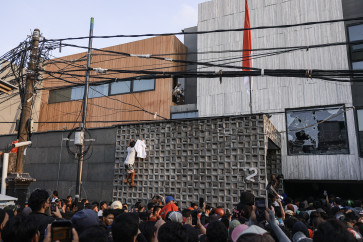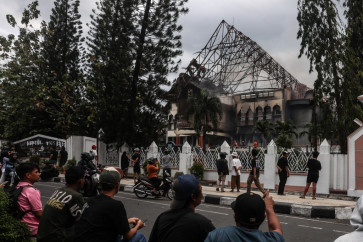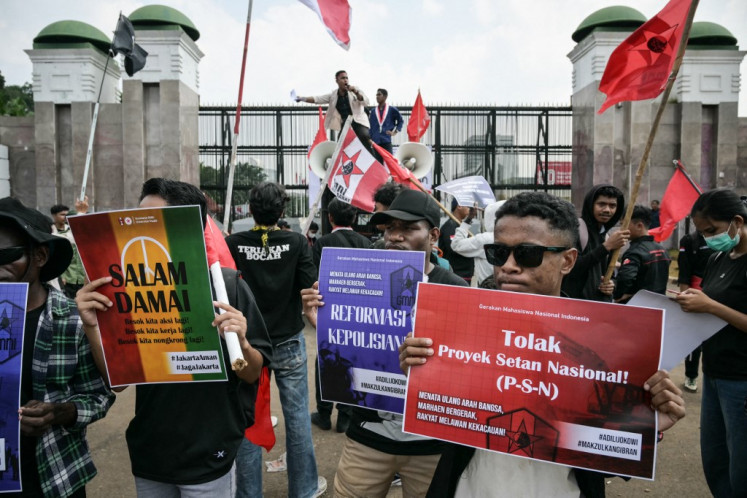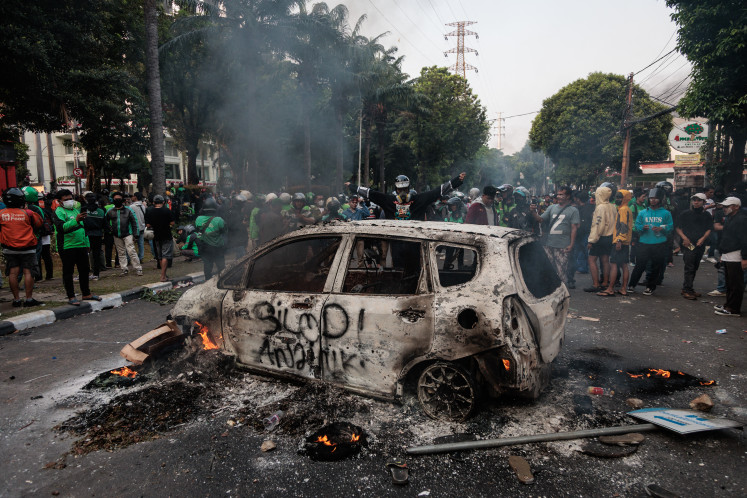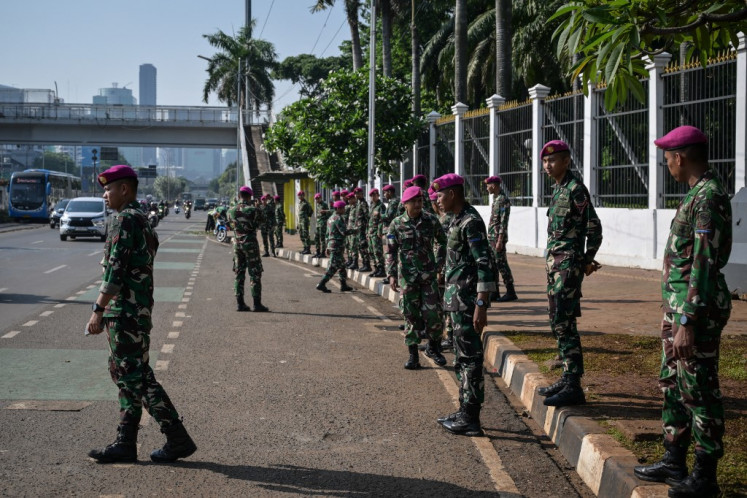Popular Reads
Top Results
Can't find what you're looking for?
View all search resultsPopular Reads
Top Results
Can't find what you're looking for?
View all search resultsDiscourse: Islam as an ideology is a threat to Islam itself
K
Change text size
Gift Premium Articles
to Anyone
K
/strong>K.H. Mustofa Bisri, an influential Muslim cleric and a respected figure in Nahdlatul Ulama (NU), the country’s largest Islamic organization, visited Brussels and Washington recently to launch the English edition of the book The Illusion of an Islamic State. Gus Mus, as he is popularly known, wrote in the epilogue to the book in that he advocated learning as a way of countering the threat of Islamic radicalism. While in Washington, he spoke with
The Jakarta Post’s senior editor Endy M. Bayuni about the threat from Islamic political ideology.
Question: You said Muslims must never stop learning as an effective way of countering radicalism. How is that so?
Answer: Life is a never-ending process of learning. Problems arise when people stop learning because they think they are already perfect and they see others as deviants. The Prophet said you never stop learning from the cradle to the grave. Fear of the West in the Islamic world and Islamophobia in the West develop because everyone stops learning. In the West, they see hard-liners setting the benchmark of what Islam stands for, not knowing that there is a large Muslim community (in Indonesia) that follows a different path
of Islam.
But going back to the Muslim world, many argue that too much learning of Islamic ideology among Muslims actually drives the radicalization process.
That’s not true. The better they understand their religion, the stronger their faith will be in their religion and they will not feel threatened by other religions. In fact, they will become more tolerant of others because of their strength. Those who don’t have such strength suffer from inferiority complexes. Out of fear, they begin to threaten others.
But the some of these radical ideologies originate from centers of Islamic studies.
They learn parts of Islam but not all. They study mostly fiqh (Islamic jurisprudence) and they think this is all of Islam. Fiqh is a small part. If you stop at fiqh, you approach God only in fear, you fear His reprisals. Religion also teaches love and akhlaq (virtues). Prophet Muhammad said he was sent not to do anything but to perfect the religions that already existed then. Like a constructed building, Islam is the last brick in the structure. Islam did not come to destroy everything and rebuild from the ground up. Fiqh ignores this aspect, and because of this, it emphasizes matters such as prayers, ablutions and giving alms. Religious instructions similarly focus on these matters. It hardly brings people closer to God.
How do you explain the rising intolerance in Muslim societies, including in Indonesia?
I say learn: Learn everything, learn the whole and not just certain parts. In pesantren (Islamic boarding schools in Indonesia) there was a time when they taught everything. Now they teach you to become specialists. Like doctors, instead of general practitioners, we have specialists. It’s the same in Islam. There are specialists of all kinds, in fiqh and others. In pesantren, they learn fiqh but they forget about tasauf (spiritual knowledge) and akhlaq.
So whatever happened to Nahdlatul Ulama and Muhammadiyah, the two Islamic mass-based organizations that played an important role in moderating Islam in Indonesia?
NU and Muhammadiyah have become too comfortable as part of the establishment. With the emerging threats of intolerance and radicalization, they are waking up from their slumber. The good thing is they are now united in fighting this threat instead of fighting each other over fiqh. They are united on issues of the virtues and creed.
Your book discusses the threat of the ideology that seeks to turn Indonesia into an Islamic state. Yet Indonesia is nowhere near becoming one. So where is the threat?
When religion is turned into political ideology, it is a serious threat. Politicians like to use religion as a tool for achieving political goals. It’s like you’ve brought along God on the campaign trail. Because they lack self-confidence, they have to bring in God. The violent conflicts (between Muslims and people of other faiths) we are seeing in Indonesia are politically motivated. They have nothing to do with the religion. Some people, because of their economic conditions, are easily influenced by political slogans heavy in religious symbols.
So, you disagree with parties that use Islam as their ideology?
Islam is not a goal, it is a means to reach God. When you use Islam as political ideology, you are sowing conflicts that prevent people from reaching God. In the Middle East, they know it is dangerous to use Islam as a political ideology, so it is banned. Those who use Islam as ideology see themselves as better than others, and they see others as evil.
Endy M. Bayuni is currently a visiting fellow at the East West Center in Washington.



